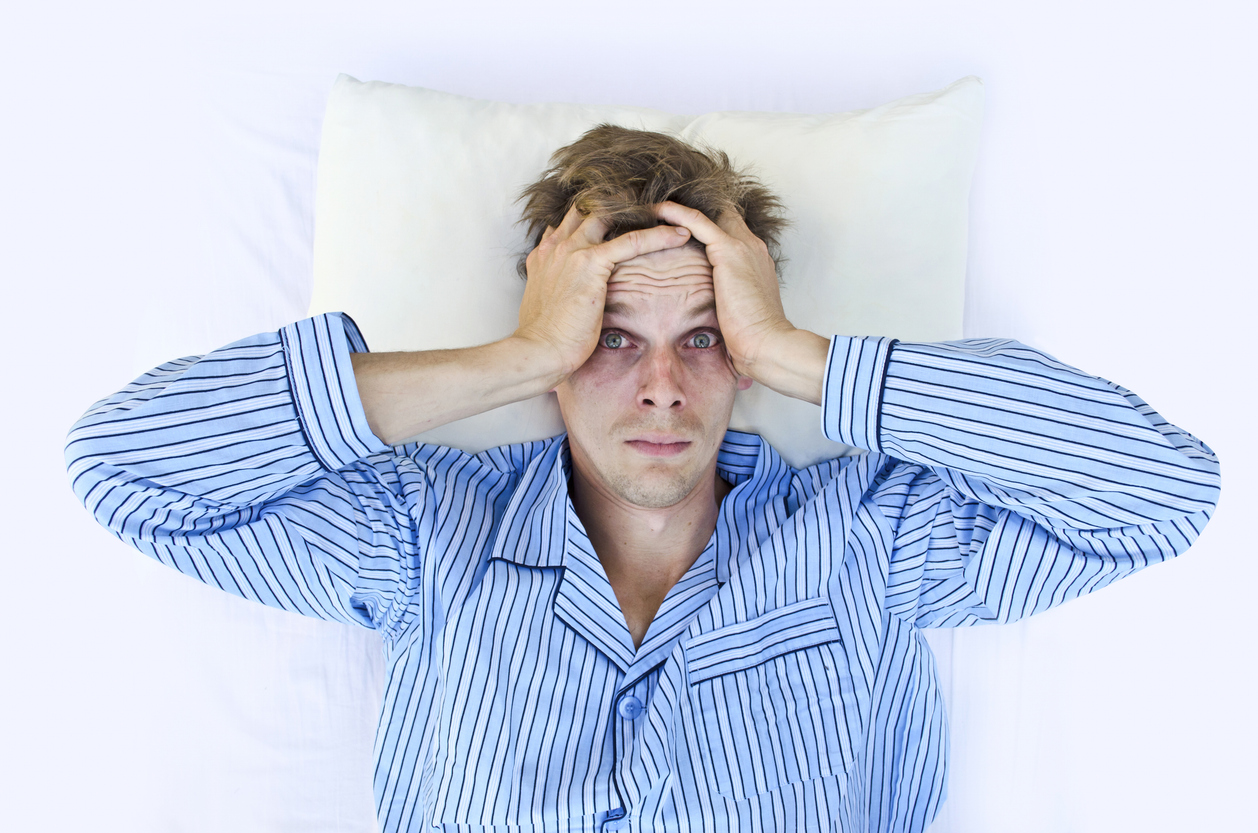1. Your Internal Clock is Thrown Off

Twice a year, we go through the same ritual—setting our clocks forward or backward, convincing ourselves it’s just an hour and that we’ll adjust in no time. But our bodies don’t see it that way. The human body runs on a carefully tuned circadian rhythm, which controls everything from sleep to digestion to mental clarity. When we shift the clocks, even by just an hour, we throw that delicate balance into chaos. Many people feel groggy, irritable, and unfocused for days, sometimes even weeks, after the change. It’s not just a minor inconvenience; it’s a disruption that can impact everything from work productivity to personal relationships.
The problem is even worse for those who already struggle with sleep. Night owls, early birds, and shift workers all find themselves battling exhaustion as their bodies fight against the abrupt change. Studies have shown that people sleep less efficiently after the time shift, leading to more restless nights and sluggish mornings. It’s like experiencing a tiny dose of jet lag without ever leaving home. And unlike actual travel, where your body can slowly adapt, daylight saving time (or the return to standard time) forces you to adjust instantly. The result? Poorer sleep, lower energy, and a general sense of disorientation that lingers far longer than anyone expects.
2. Your Heart and Brain Suffer

The clock change doesn’t just make you feel tired—it can have real consequences for your heart and brain health. Research has linked the spring-forward time change to a temporary increase in heart attacks, strokes, and even car accidents. That single lost hour of sleep might not seem like much, but for people with underlying heart conditions, it can be the trigger that pushes their body over the edge. The sudden disruption in sleep patterns also affects blood pressure and inflammation levels, both of which are closely tied to cardiovascular health.
Brain function also takes a noticeable dip after the time change. People report difficulty concentrating, making more mistakes at work, and feeling mentally sluggish. Reaction times slow, making daily activities like driving more dangerous. In fact, the days following the time shift often see an uptick in car crashes due to drowsy driving. The connection is clear: when we mess with the body’s natural rhythms, it pushes our health into dangerous territory. It’s no surprise that many health professionals advocate for ending the clock-changing tradition altogether.
3. Your Mood Takes a Hit

For some, the time change is just an annoyance, but for others, it has a deeper emotional impact. The shift in daylight hours can bring about mood changes, increased anxiety, and even seasonal depression. When we fall back in November, the early darkness can feel like a sudden curtain drop on our daily lives. People who already struggle with mental health issues often find that this time of year brings increased stress, loneliness, and even depressive symptoms. Losing an hour of evening sunlight can make a noticeable difference in motivation, productivity, and overall well-being.
The springtime change isn’t always better. While more daylight might seem like a good thing, the abrupt loss of an hour’s sleep can make people irritable and emotionally drained. Even those who don’t normally struggle with mood swings might feel unusually out of sync, with little patience for everyday frustrations. The emotional rollercoaster of adjusting to the new time takes its toll, and it’s not just about feeling grumpy. It’s a deep, systemic reaction to something our bodies never asked for in the first place.
4. Productivity and Focus Decline

The Monday after the spring time change is notorious for being one of the least productive days of the year. It’s not hard to see why—people are sleep-deprived, sluggish, and struggling to get back into their routines. Whether at work, school, or home, the time shift throws off focus and decision-making skills. It’s like trying to function with a low-grade brain fog that just won’t lift. Tasks that would normally be easy become frustratingly difficult, and deadlines feel even more stressful than usual.
For jobs that require precision, the impact can be even greater. Industries that rely on alertness—like healthcare, transportation, and manufacturing—see more mistakes and accidents in the days following the time change. It’s not just about feeling a little off—it’s a real, measurable dip in performance. And unlike a bad night of sleep, where recovery is relatively quick, the effects of changing the clocks can linger for weeks, dragging down efficiency and motivation across the board.
5. Your Body Craves Stability

One of the biggest problems with changing the clocks is how unnatural it is. The body craves consistency, relying on light and dark cues to regulate everything from hormone production to digestion. When we abruptly change our schedules, we force the body into a state of confusion. Melatonin, the hormone responsible for sleep, gets thrown off, making it harder to fall asleep at night and wake up in the morning. Cortisol levels, which help us manage stress, also fluctuate, leading to mood swings and higher anxiety.
The result? Many people feel out of sync for days or even weeks after the transition. Appetite can be affected too, with cravings for sugar and caffeine increasing as the body searches for quick energy. Some people even report digestive issues, as their internal systems struggle to adjust. The body isn’t designed to be reset like a clock—it needs gradual adjustments, not sudden shifts. That’s why so many experts argue that keeping a stable time year-round would be a healthier choice for everyone.
6. It Disrupts Spiritual and Personal Rhythms

For those who follow spiritual or meditative practices, the time change can feel like an unwanted disruption. Many people rely on a set routine for morning prayer, meditation, or reflection, and shifting the clocks throws off those sacred moments. The stillness of early morning, the golden hour of evening—these moments carry significance, and losing them, even temporarily, can feel jarring. It’s not just about time itself; it’s about the connection we have to the natural world and our daily rituals.
Even outside of spirituality, there’s an emotional toll. Time anchors our sense of stability and control, and when it changes unpredictably, it can create a subtle but real sense of unease. People who enjoy evening walks may suddenly find themselves in darkness, while early risers may miss their quiet, pre-dawn solitude. It’s a reminder that time isn’t just numbers on a clock—it’s deeply tied to how we experience life. When that rhythm is altered, even slightly, it can create a ripple effect that impacts our overall well-being.
7. The Impact on Children and Pets

If you have kids or pets, you know how much they rely on routine. Small children don’t understand why bedtime is suddenly an hour later or why they feel exhausted in the morning. Parents often spend days—sometimes weeks—trying to get their little ones back on a normal schedule. Sleep disruptions can lead to crankiness, difficulty focusing, and even behavioral issues. Schools report that kids are more distracted and irritable in the days following the time change, struggling to stay engaged in class.
Pets don’t fare much better. Dogs expect their walks and meals at the same time every day, and they don’t understand why their schedule has suddenly shifted. Many pet owners notice their animals pacing, whining, or acting unsettled in the days after the clocks change. For animals that rely on feeding schedules—like livestock—the shift can be even more disruptive. It’s another example of how time changes don’t just affect humans; they ripple across the entire household, making life harder for everyone.
8. The Economy Takes a Hit

It’s easy to think of the time change as just a personal inconvenience, but it has real economic consequences too. Studies have shown that workplace productivity drops in the days following the shift, costing businesses millions of dollars in lost efficiency. Employees are more prone to making mistakes, calling in sick, or struggling through the day in a groggy state. In industries where precision is crucial, like healthcare or transportation, even a small drop in performance can have major consequences.
Retailers also feel the effects. When people are tired, they’re less likely to go out and shop, leading to lower sales in the days immediately after the change. Online shopping habits shift too, with fewer people making big purchases when they’re mentally drained. Even the stock market isn’t immune—historically, the Monday after the time change has shown a slight dip in trading activity. It’s a reminder that changing the clocks doesn’t just impact individuals; it affects the entire economy in ways most people don’t even realize.
9. The Debate Over Permanent Standard Time

Every year, the debate over daylight saving time resurfaces, with more and more people pushing for a permanent solution. Some argue that we should stay on daylight saving time year-round, while others believe standard time is the better choice. The issue is complex, with arguments on both sides about energy savings, public safety, and the impact on health. But one thing is clear: the majority of people don’t want to keep changing the clocks twice a year.
In recent years, several states have attempted to pass legislation to do away with the time change entirely, but federal approval is required to make it official. Until that happens, millions of people will continue to deal with the biannual disruption. With growing awareness of its negative effects, the push for change is stronger than ever. The real question is, how long will it take for lawmakers to finally listen?
10. How to Minimize the Impact

While we can’t personally control the clocks, there are ways to make the transition easier. Gradually adjusting your sleep schedule a few days before the time change can help your body ease into the shift. Going to bed 15 minutes earlier each night in the days leading up to the change can make a noticeable difference. Limiting caffeine and screen time before bed also helps, as these can interfere with melatonin production.
Getting outside in natural light as early as possible in the morning can help reset your internal clock faster. Exercise, hydration, and consistent meal times also play a role in helping your body adapt. If you struggle with the transition, consider taking short naps to combat fatigue, but avoid long naps that could make nighttime sleep harder. Until the time change debate is settled for good, the best we can do is work with our bodies to minimize the disruption.


